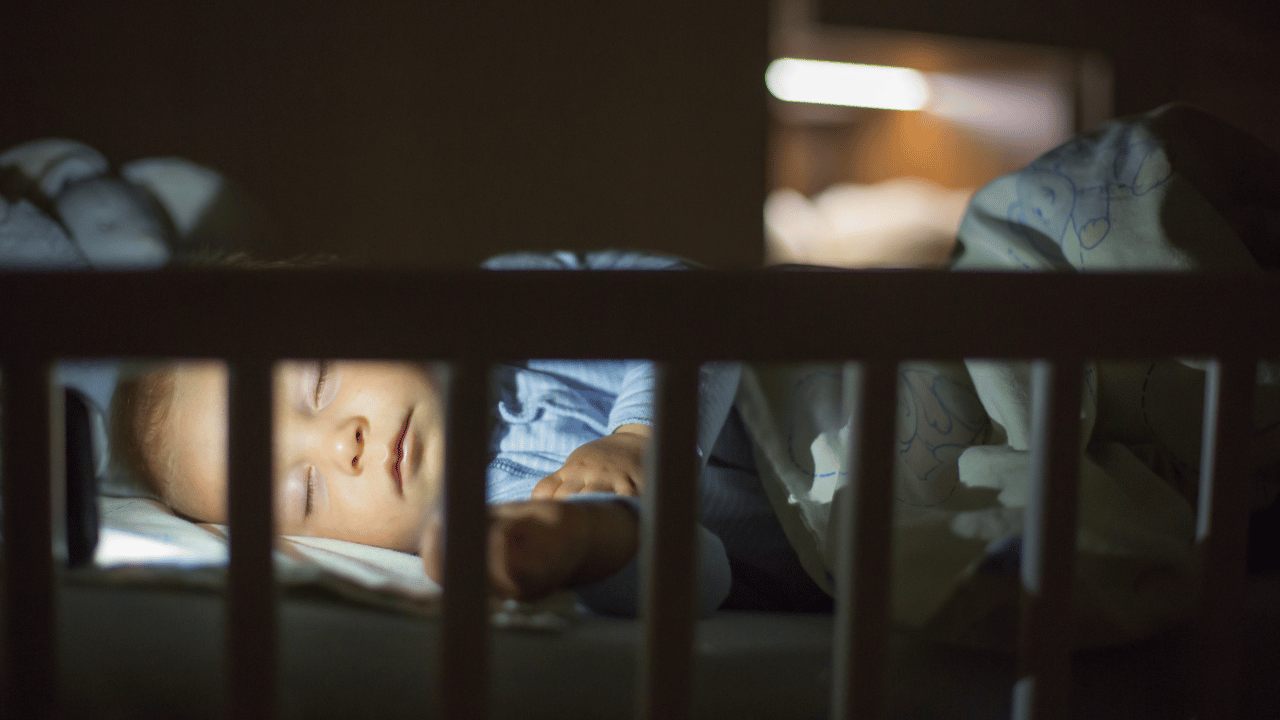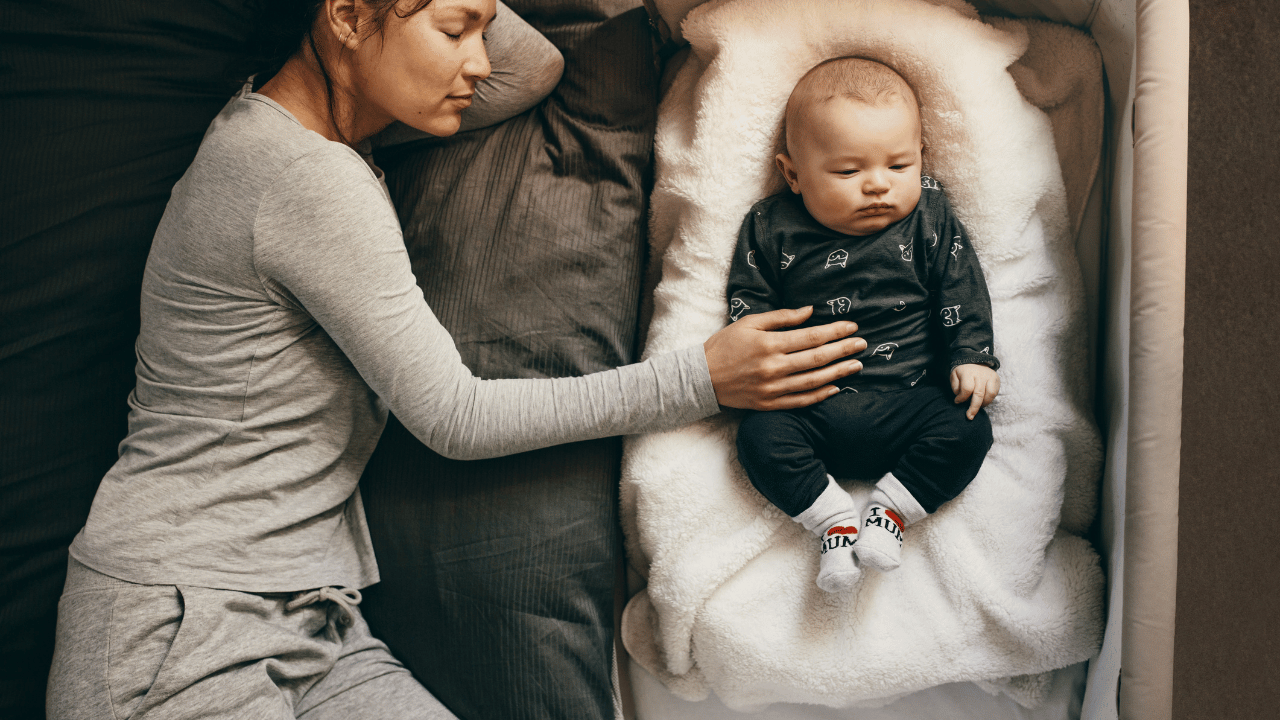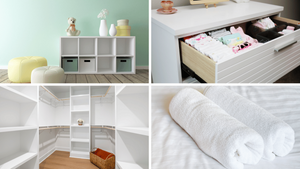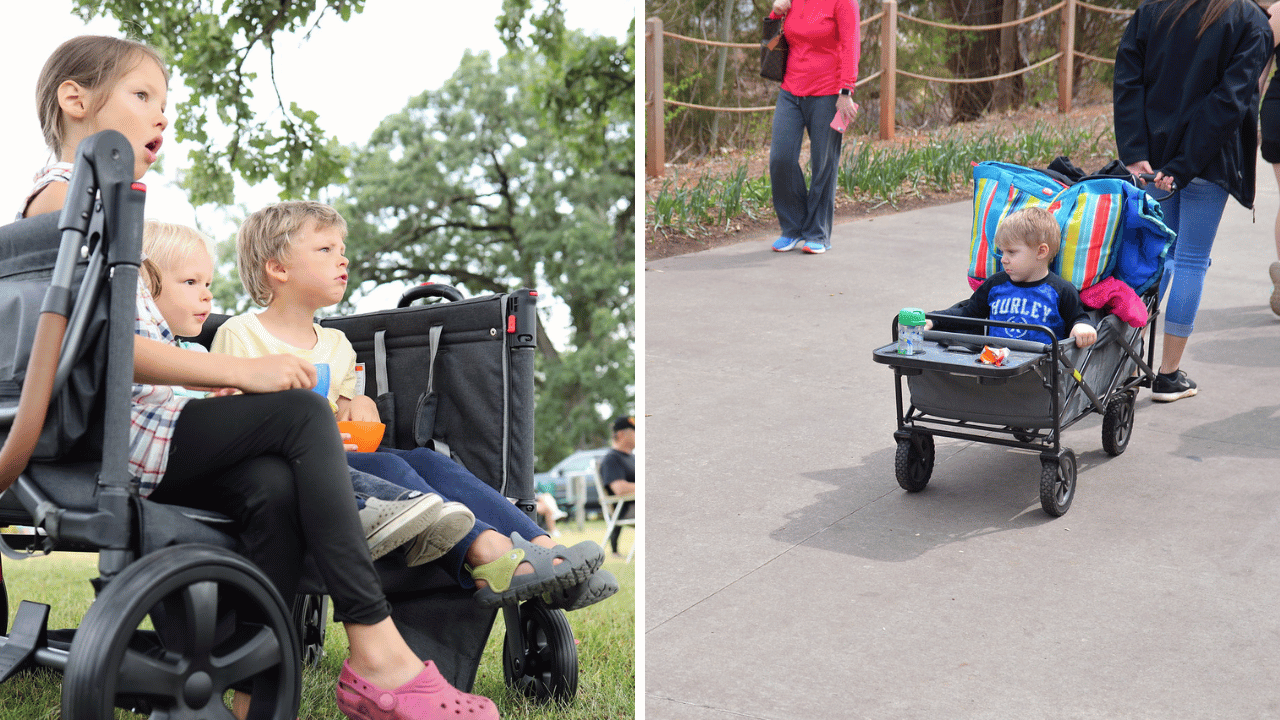If your baby isn't sleeping in their crib, you may be feeling frustrated and overwhelmed. It can seem like an impossible task to get them settled enough so they stay asleep for the night.
You're not alone - there are parents all over who have been dealing with this same problem.
But fear not! With a little bit of patience and understanding, it is possible to find a solution that will help your baby sleep happily and safely in their own bed - meaning more well rested mornings for the whole family!
In this blog post, we'll take a look at common causes as to why babies don't want to sleep in their cribs, along with some experience-backed tips and advice on how to overcome this issue. Read on if you need help getting your baby's sleeping habits back on track.
Establish a Consistent Bedtime Routine - read a book, sing a song
Having a consistent bedtime routine is key for helping your baby transition into sleep. This could be anything from reading them a book, singing a lullaby, or rocking them in your arms. When you do these activities every night before bedtime, it signals to your baby that it's time to start winding down and getting ready for some good rest.
Make sure you stick to the same routine every night. This helps your baby recognize that it's time for sleep and can help them settle down better when it's time to put them in their crib.
Also, avoid doing stimulating activities like playing or watching TV before bedtime. The bright lights and loud sounds can be too much for their sensitive minds and may make it harder for them to fall asleep in their own bed when the time comes.

Keep the Room Dark and Quiet While Your Baby is Sleeping
Babies need a dark and quiet environment to get the best sleep possible. During nap time or bedtime, make sure to keep the room dimly lit with black-out curtains or shades. This makes it easier for them to settle into a deep sleep without being disturbed by bright light sources.
Also, try to minimize any noise from in or outside the house. This could mean wearing noise-canceling headphones while your baby is asleep, or running a fan in the background to block out any outside noises.
Make Sure the Crib Mattress is Firm and Comfortable
A quality mattress is essential for providing your baby with the best possible sleep environment. Make sure to invest in a crib mattress that is firm enough to support their growing body, but also comfortable enough to give them a good night's rest.
If you're not sure which type of mattress is right for your baby, ask your pediatrician or consult an experienced sales associate at a baby store. They can help you find the perfect mattress that will keep your little one sleeping soundly all night long.

Create an Environment That Promotes Sleep - No Bright Lights or Loud Noises
When it comes to creating an environment that promotes sleep, you want to make sure there are no bright lights or loud noises in the room. This means keeping any toys and electronics out of reach of your baby and avoiding anything that could wake them up from their slumber.
Also, try not to keep too many items in the crib. These can be distracting and make it harder for your baby to settle into sleep. Instead, focus on filling their crib with items that help them relax such as favorite blankets or stuffed animals.
Also, consider adding a white noise machine or sound machine that produces calming sounds like ocean waves or rainforest noises. Listening to these gentle sounds can help your baby drift off into a deep sleep quickly and easily.
Be Mindful of Your Baby's Eating Schedule - Feeding Too Close to Bedtime Can Interfere With Their Sleep
If your baby has had a large meal too close to bedtime, this can interfere with their ability to fall asleep and stay asleep during the night. Try to feed them at least an hour or two before putting them in their crib so their body has time to digest the food properly.
Also, make sure your baby is getting enough calories throughout the day. If they are not well fed during the day, this could be disrupting their sleep at night. Talk to your pediatrician if you need help with meal planning or nutritional advice.

Fun and Lighthearted Tips to Help When Your Baby Doesn't Want to Sleep
As a parent, you've probably experienced the frustration of trying to put your little one to sleep, only to be met with resistance, tears, and endless waking. Fear not, exhausted moms and dads! We've got your back with some fun and practical tips to help your baby finally settle down in bed. Get ready for a good laugh and some much-needed shut-eye!
Embrace the Power of White Noise: Invest in a sound machine that plays soothing sounds like ocean waves or rain showers. Not only will it create a calm environment for your baby, but it might also drown out the sound of your neighbor's dog barking at 3 a.m.
Rock-a-Bye Anywhere: Does your baby only fall asleep when rocked? Embrace that motion and get creative! Strap on a baby carrier and take a walk around the block. You'll be sleepwalking in no time.
Turn Your Bed into a Sleep Oasis: Make your bed the ultimate sleep sanctuary for your little one. Fluffy pillows, cozy blankets, and a mountain of stuffed animals - it's like a five-star hotel for babies. Just remember to clear some space for yourself too!
Master the Art of Swaddling: Wrap your baby up tight like a burrito. Not only will it make them feel safe and secure, but they'll also look adorable. Just be careful not to mistake your little bundle of joy for an actual burrito in those late-night delirious moments.
Sing Like No One Is Listening: Lullabies are a classic way to soothe babies to sleep, but don't be afraid to mix it up a bit. Belt out your favorite '80s power ballads or serenade your little one with a rap verse. They might not appreciate your musical prowess, but it'll distract them from their sleep rebellion.
Negotiate a Trade-Off: Babies are all about give and take, right? Strike a deal with your little one - they can stay up an extra 15 minutes if they promise to sleep soundly for the rest of the night. Okay, so they can't really understand you yet, but it's worth a shot!
Bring in the Backup Squad: Call in reinforcements! Enlist the help of grandparents, aunts, uncles, or even your trusted pet. Sometimes, a change in scenery or a different set of arms can be all it takes to lull your baby into dreamland.
Create a Bedtime Routine That's Out of This World: Make bedtime a magical extravaganza! Put on a puppet show, read a story with funny voices, or have a dance party in the living room. Make it so exciting that your baby can't resist getting in bed to see what's next. Who says bedtime has to be boring?
Channel Your Inner Sleep Scientist: Experiment with different sleep aids and techniques until you find the perfect formula for your baby's elusive sleep. From lavender-scented lotions to gentle massages, explore the world of baby sleep science like a fearless explorer on a mission.
Remember: You're Not Alone: When all else fails, remember that you're not the only parent going through this. Reach out to other sleep-deprived moms and dads for support and commiseration. Share your funny sleepless night stories and find solace in the fact that this too shall pass.
Talk To Your Pediatrician if You Have Concerns About Bedtime Habits or Sleep Patterns
If you are still having trouble getting your baby to sleep in their crib or if you have any other concerns about bedtime habits or sleep patterns, it is important to speak with your pediatrician. They can help diagnose any underlying issues and provide guidance on how to get back on track.
By implementing these tips and working closely with your pediatrician, you should be able to help your baby sleep soundly in their own bed. Remember, having a peaceful sleep environment is key for helping them get the rest they need for healthy growth and development. With a little bit of patience and understanding, you can find the perfect solution that will have everyone sleeping soundly soon!
Baby Won't Sleep in Crib FAQs
Can white noise help my baby sleep better?
Yes, white noise can be very helpful in helping babies fall asleep and stay asleep. White noise machines produce calming sounds like ocean waves or rainforest noises that help block out distractions and create a more peaceful environment for your little one to rest in! Make sure to choose a noise machine specifically designed for baby's sensitive ears and keep the volume at a low level.
How do I know if my baby is getting enough sleep?
Your baby should be getting around 14-17 hours of sleep per day, depending on their age. If they are not getting enough rest, you may notice signs such as excessive crying, irritability, difficulty falling asleep or staying asleep, or delayed development. Talk to your pediatrician if you have any concerns about your baby's sleep habits or patterns.
What should I do if my baby wakes up in the middle of the night?
If your baby wakes up during the night, try not to rush into their room right away. Give them a few minutes and see if they can settle back down on their own. If they are still crying or fussing after a few minutes, you can go into the room and comfort them without picking them up. You can talk to them in a soft voice, pat their back or sing a soothing song until they fall back asleep.
Final Thoughts
Handling the "baby won't sleep in bed" scenario can be challenging, but with a sprinkle of humor, a dash of creativity, and a lot of patience, you'll survive this phase. Embrace the chaos, cherish the precious moments, and remember that sleep will eventually find its way back into your life. Until then, keep calm, carry on, and enjoy the journey of parenthood - sleepless nights and all.
Disclaimer: The tips in this article are meant to be lighthearted and entertaining. Always consult with a pediatrician for professional advice on baby sleep issues.









